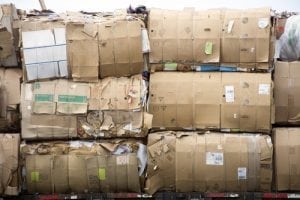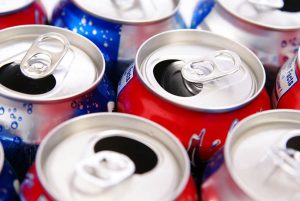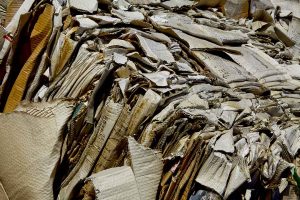 The U.S. will enact tariffs on $50 billion worth of Chinese products beginning July 6. Vowing retaliation, China released its own list of U.S. products to target in July.
The U.S. will enact tariffs on $50 billion worth of Chinese products beginning July 6. Vowing retaliation, China released its own list of U.S. products to target in July.

 The U.S. will enact tariffs on $50 billion worth of Chinese products beginning July 6. Vowing retaliation, China released its own list of U.S. products to target in July.
The U.S. will enact tariffs on $50 billion worth of Chinese products beginning July 6. Vowing retaliation, China released its own list of U.S. products to target in July.
 Markets for curbside PET and HDPE continue to strengthen, and better prices are starting to be garnered for some recovered fibers. Continue Reading
Markets for curbside PET and HDPE continue to strengthen, and better prices are starting to be garnered for some recovered fibers. Continue Reading
Four years ago, it became clear Montgomery, Ala. was going to be the testing ground for an updated approach to mixed-waste processing.
 OCC prices have taken a steep drop, but values for some key plastics continue to climb.
OCC prices have taken a steep drop, but values for some key plastics continue to climb.

A market expert recently discussed some of the effects China’s National Sword policy has had on that country’s massive paper-products industry.
 Debate over source separation has carried on since the single-stream concept emerged, but it has received particular attention over the past year, because of China’s import restrictions and the ensuing market fallout.
Debate over source separation has carried on since the single-stream concept emerged, but it has received particular attention over the past year, because of China’s import restrictions and the ensuing market fallout.
 The pricing slump continues for curbside fibers, but a number of plastics have increased in value.
The pricing slump continues for curbside fibers, but a number of plastics have increased in value.
 A $1 million loan from the state of California will help a small manufacturer boost its production of recycled-fiber-content bottles.
A $1 million loan from the state of California will help a small manufacturer boost its production of recycled-fiber-content bottles.
 Novelis, one of the world’s largest buyers of recovered aluminum, continues to increase its consumption of the material.
Novelis, one of the world’s largest buyers of recovered aluminum, continues to increase its consumption of the material.
 China’s import shifts have meant plummeting OCC prices, a fact that’s been a boon to the bottom line of U.S. mill owners. But paper executives aren’t expecting the scenario to necessarily become the new norm.
China’s import shifts have meant plummeting OCC prices, a fact that’s been a boon to the bottom line of U.S. mill owners. But paper executives aren’t expecting the scenario to necessarily become the new norm.
